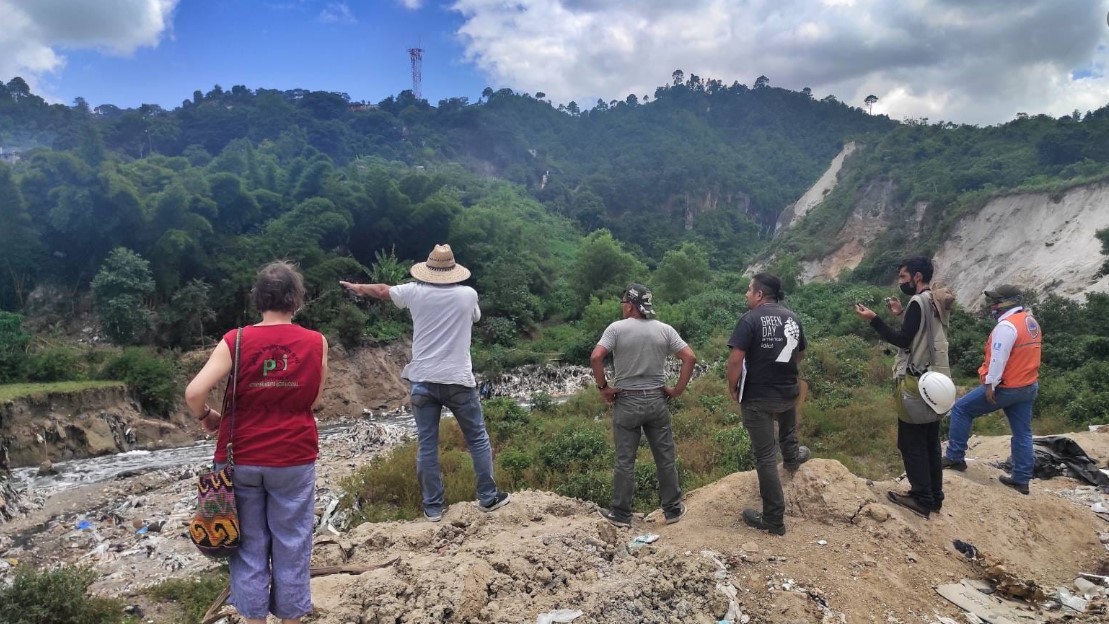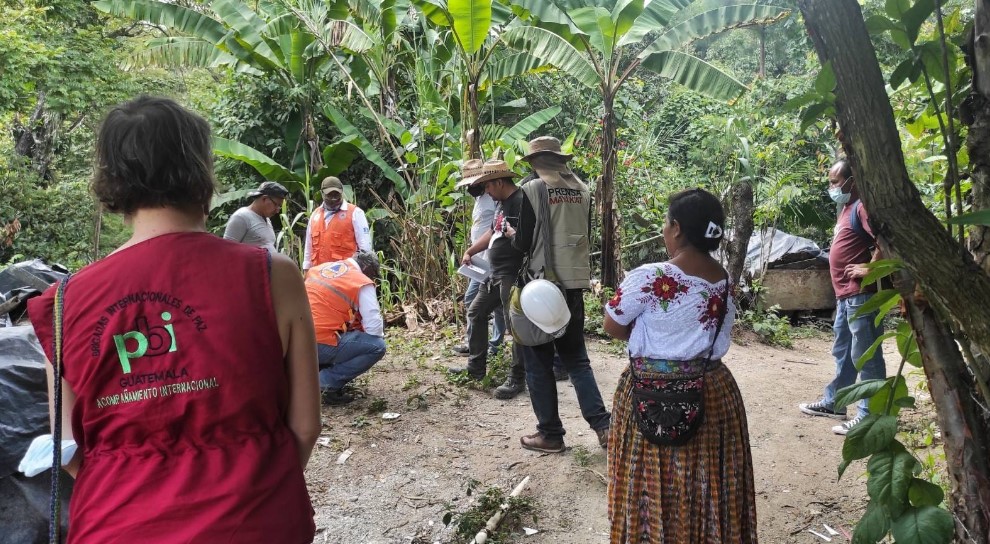
On August 5, PBI-Guatemala posted:
“PBI accompanies the multisectoral Chinautla, in the inspection by CONRED to verify damage to house structures caused by sand extraction in the region.”

CONRED (The National Coordination for Disaster Reduction/ Coordinadora Nacional para la Reducción de Desastres) is a Guatemalan government organization created to prevent disasters or reduce their impact on society, and coordinate disaster relief efforts.
On July 19, Con Criterio reported:
“The struggle of the Poqomam people of Santa Cruz, Chinautla, has been going on for decades. They have never received a response to their demands: to stop the extraction of sand that, according to them, destroys homes, and hills and causes the migration of families to other municipalities to escape environmental degradation.
Chinautla is a municipality in Guatemala, located seven kilometers from the capital, it is estimated that 114,752 people live there. There, according to the records of the Ministry of Energy and Mines (MEN), six mining companies operate with authorization to extract sand and other materials. The neighbors, however, assure that there are more companies that extract behind their backs or with the consent of the municipal authorities.
The mining companies in Chinautla and registered with the MEN are these 6: La Presa, Arenera del Pino, San Fernando, El Manguito, La Primavera, and San Luis, which have operated in that locality since 1996 and 2005. All have licenses for the manufacturing of stone, select, mud extraction, white sand, and river.
Peace Brigades International (PBI), an entity that accompanies the civilian population for the resolution of conflicts, revealed through this report on its electronic portal that the sand extraction projects in that municipality have caused alterations in the course of the rivers and riverbanks, as well as respiratory diseases. The community most affected by extractive activities, according to the brigades, is Santa Cruz, Chinautla, because of 150 families that lived 500 meters from the sand pits, only 20 remain, the rest migrated to other places.
According to PBI, during the administration of former mayor, Arnoldo Medrano between (1988 and 2015) the industrial extraction process was authorized with machinery and trucks from the capital, without consulting the affected communities.”
The full article can be read in Spanish at “La arenera se llevó todo, ya no podemos vivir en Chinautla”.
In May 2018, the Guatemalan newspaper Prensa Libre also reported that the extraction of sand from the channel of the Chinautla River and the confluence of the Tzaljá and Las Vacas tributaries, in an area where there are already geological faults, accelerates the cracking of walls and the sinking of some homes in the community.
Residents of Santa Cruz Chinautla have also denounced the degradation of the Chinautla River basin as eco-ethnocide against the Poqomam peoples.
The PBI-Guatemala Project has accompanied the Chinautla Multisector Urban Platform since December 2018.


